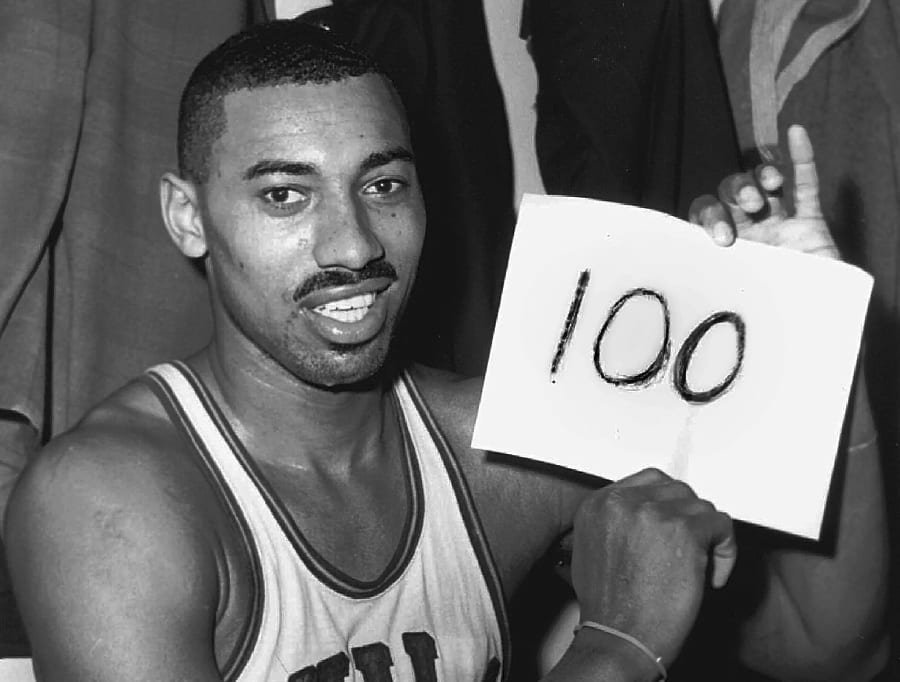Relocating an NHL team is a complex decision driven by various economic factors. It affects not only the team but also the league, the cities involved, and the fans. Let’s explore the key economic considerations behind NHL team relocations.
Financial Struggles
Low Attendance and Revenue Shortfalls

Teams often relocate due to financial struggles. Low attendance, poor revenue, and lack of sponsorship can make it difficult for a team to stay profitable. For example, the Atlanta Thrashers moved to Winnipeg in 2011 and became the Jets due to financial losses and low fan engagement.
Moving to a more hockey-centric market helped stabilize their finances. The Thrashers struggled with one of the lowest attendance records in the NHL, leading to revenue shortfalls that the ownership could no longer sustain.
The Role of Fan Engagement
Fan engagement is crucial for a team’s financial health. In markets where hockey is not a dominant sport, teams may struggle to fill seats and sell merchandise. The Thrashers’ lack of fan engagement was evident in their poor ticket sales and limited local support, contributing significantly to their financial woes.
In contrast, Winnipeg’s passionate hockey fan base welcomed the team with open arms, leading to sold-out games and a surge in merchandise sales, which revitalized the franchise’s financial stability.
Sponsorship and Local Support
Sponsorship deals and local business support also play significant roles in a team’s financial success. The Thrashers faced challenges securing substantial sponsorships in Atlanta. Companies were hesitant to invest in a team with declining performance and fan interest.
When the team relocated to Winnipeg, they found a more supportive business community eager to associate with the revived Jets, resulting in lucrative sponsorship deals that bolstered the team’s revenue streams.
Market Size and Potential
Revenue Opportunities in Larger Markets
Market size plays a crucial role in team relocation. Larger markets offer more opportunities for revenue through ticket sales, merchandise, and local broadcasting deals. For instance, when the Quebec Nordiques moved to Denver in 1995, they became the Colorado Avalanche.
Denver’s larger market provided better financial opportunities and a more sustainable fan base. Additionally, Denver’s thriving sports culture and higher disposable incomes meant more fans attending games and purchasing team merchandise, contributing to a healthier financial situation for the franchise.
Thriving Sports Culture
A thriving sports culture can significantly enhance a team’s financial prospects. Denver, known for its passionate sports fans and established franchises in other major leagues, provided an ideal environment for the Avalanche.
The city’s existing sports infrastructure and media coverage helped integrate the team smoothly, ensuring immediate fan support and media attention. This transition highlighted the importance of relocating to cities with established sports cultures that can sustain a new team.
Disposable Incomes and Economic Stability
Higher disposable incomes in larger markets mean more spending on entertainment, including hockey games. In Denver, the economic stability and higher average incomes allowed fans to spend more on tickets, concessions, and team merchandise.
This economic environment contrasts sharply with smaller markets, where limited disposable income can restrict fan spending, further challenging a team’s financial viability.
Arena Facilities
Importance of Modern Arenas

The quality of arena facilities can influence relocation decisions. Modern arenas with better amenities attract more fans and offer lucrative naming rights and advertising deals. Teams often relocate to cities with state-of-the-art arenas.
The move of the Hartford Whalers to Raleigh in 1997, becoming the Carolina Hurricanes, was partly due to better arena facilities and support from local government. Hartford’s outdated Civic Center couldn’t compete with the modern entertainment complex offered in Raleigh, which included suites, club seats, and better fan experiences, all crucial for revenue generation.
Revenue Generation from Amenities
Modern arenas provide numerous revenue-generating opportunities. Suites and club seats, which offer premium viewing experiences, can be sold at higher prices, attracting corporate clients and high-income fans.
Additionally, modern arenas come with enhanced concessions and retail spaces, driving additional revenue on game days. Raleigh’s entertainment complex, for instance, offered these amenities, significantly boosting the Hurricanes’ game-day revenues compared to their previous situation in Hartford.
Government and Community Support
Local government and community support are critical in securing and maintaining modern arenas. In Raleigh, the state and local governments provided financial incentives and support for building the new arena, understanding its potential economic impact.
This support included funding for infrastructure improvements and tax incentives, making the relocation financially viable for the team. Such community backing is essential for ensuring the long-term success of a relocated franchise.
Impact on Fan Experience
Modern facilities enhance the overall fan experience, making games more enjoyable and attracting repeat attendees. Features like larger video boards, better seating arrangements, and interactive fan zones create a more engaging environment.
The improved fan experience in Raleigh helped the Hurricanes build a loyal fan base, crucial for sustained financial success. The contrast with Hartford’s older facilities underscored the importance of modern amenities in attracting and retaining fans.
Economic Incentives
Attracting Teams with Financial Support
Cities looking to attract NHL teams may offer economic incentives. These can include tax breaks, subsidies, and financial assistance for building new arenas. Such incentives can make relocation more appealing for struggling teams.
When the Kansas City Scouts moved to Denver in 1976 to become the Colorado Rockies (later the New Jersey Devils), local economic incentives played a role. Kansas City’s financial support couldn’t match Denver’s offer, which included assistance for a new arena and tax incentives that provided immediate financial relief for the struggling franchise.
Case Studies of Economic Incentives
Denver’s commitment to building the McNichols Sports Arena was a significant draw for the Scouts. The promise of a modern facility with better amenities and increased revenue potential was too good to pass up.
Similarly, when the Carolina Hurricanes moved to Raleigh, they benefited from public financing for the PNC Arena, which included contributions from the state of North Carolina and the city of Raleigh. These incentives are crucial for teams needing new or upgraded facilities to attract fans and generate revenue.
Fan Base and Engagement
Importance of a Strong Fan Base
A strong, passionate fan base is essential for a team’s financial health. Teams may relocate to cities with a demonstrated interest in hockey, ensuring better attendance and community support. The Minnesota North Stars’ move to Dallas in 1993, becoming the Dallas Stars, capitalized on a growing hockey market in Texas with a dedicated fan base.
Dallas had shown significant interest in minor league hockey, indicating potential for NHL success. The move was a financial turnaround, with attendance and local sponsorships rising sharply compared to Minnesota.
Building a Fan Base
Creating a strong fan base involves more than just moving to a new city. It requires community engagement, effective marketing, and successful team performance. The Dallas Stars invested in local youth hockey programs, which helped build a new generation of fans.
Community outreach programs and involvement in local events also played a role in integrating the team into the fabric of the city. These efforts foster loyalty and long-term support, essential for sustained financial health.
Broadcast and Media Markets
Leveraging Media Markets for Revenue

Relocating to a city with a robust media market can increase a team’s revenue. Larger media markets offer better local TV and radio deals, enhancing the team’s visibility and financial stability.
The Winnipeg Jets’ move to Phoenix in 1996, becoming the Arizona Coyotes, aimed to tap into the larger media market of the southwestern United States.
This move sought to benefit from the growing sports media landscape in Phoenix, promising higher advertising revenues and broader media coverage, which were not as lucrative in Winnipeg’s smaller market.
Impact of Media Coverage
In a larger media market, teams can negotiate more lucrative broadcasting deals. These deals provide significant revenue streams and increase the team’s visibility, attracting more fans and sponsors.
For instance, the New York Rangers benefit immensely from being in the largest media market in the U.S. Their games are widely broadcasted, and they receive substantial income from local TV deals, sponsorships, and advertising. This exposure is crucial for financial stability and growth.
Impact on Local Economy
Economic Benefits of Gaining a Team
The relocation of an NHL team can significantly impact the local economy. The loss of a team can lead to decreased economic activity, affecting local businesses and employment. Conversely, gaining a team can boost local businesses, create jobs, and increase tourism.
The Nashville Predators’ establishment in 1998 brought economic benefits to Nashville, enhancing its reputation as a sports city. Local restaurants, hotels, and retail stores saw increased business, while the city’s tourism sector benefited from visiting fans and media covering games.
Broader Economic Impact
The presence of a professional sports team can lead to the development of surrounding areas. For example, the Bridgestone Arena, home of the Nashville Predators, has been a catalyst for downtown development.
The area has seen new restaurants, hotels, and retail establishments, creating jobs and boosting the local economy. The economic ripple effect of hosting an NHL team extends beyond game days, contributing to the city’s overall growth and prosperity.
League Considerations
Strategic Decision-Making
The NHL considers the overall impact on the league when approving relocations. They evaluate the potential for market growth, balance of team distribution, and long-term financial stability. The league aims to ensure that relocations benefit the overall health of the NHL.
The move of the Winnipeg Jets to Phoenix and the subsequent establishment of a new Jets team in 2011 exemplifies the league’s strategic approach to market presence. The NHL seeks to maintain competitive balance and ensure all teams have access to financially viable markets.
Ensuring Competitive Balance
The league’s decision to move the Atlanta Thrashers to Winnipeg was part of a broader strategy to maintain competitive balance. By relocating the team to a market with a stronger hockey tradition and more robust fan support, the NHL aimed to stabilize the franchise financially.
Additionally, the league considers geographic distribution to reduce travel costs and create regional rivalries, enhancing fan engagement and league-wide competitiveness.
Community and Cultural Factors
Cultural Fit and Community Support
Beyond economics, cultural and community factors also play a role in relocation decisions. Teams often thrive in regions with a strong hockey culture or where sports are a significant part of local identity.
When the Whalers moved to Raleigh, they tapped into a growing interest in hockey in the Southern U.S., complemented by successful marketing and community engagement efforts that built a loyal fan base.
Similarly, the success of the Vegas Golden Knights in their inaugural season highlighted the importance of community support, with strong local engagement and cultural fit driving high attendance and fan loyalty.
Building a Community Identity
Successful relocation involves integrating the team into the community’s identity. The Vegas Golden Knights achieved this by engaging with local businesses, participating in community events, and supporting local charities.
They also capitalized on the unique cultural aspects of Las Vegas, incorporating entertainment and spectacle into their game-day experience. This approach helped build a strong, loyal fan base quickly, demonstrating the importance of cultural alignment and community integration in the success of a relocated team.
Conclusion
The economics of NHL team relocation involve multiple factors, from financial struggles to market potential and economic incentives. These moves aim to enhance the financial stability of the teams and the league.
While relocations can be challenging for fans, they are often necessary for the long-term success of the franchise and the NHL as a whole. Understanding these economic considerations helps explain why teams move and how these decisions shape the future of professional hockey.





